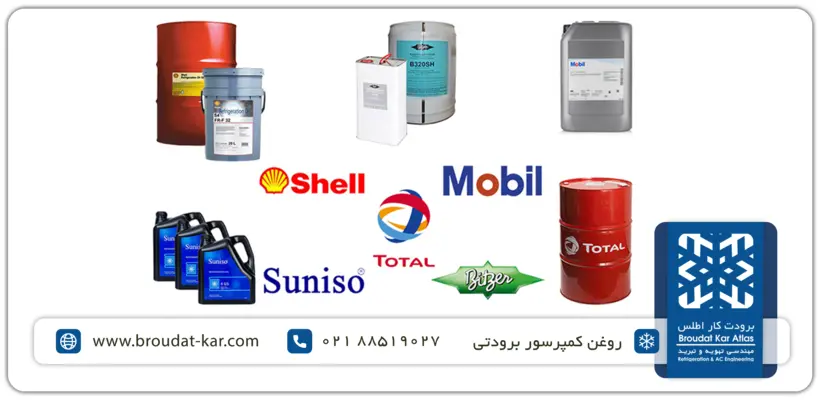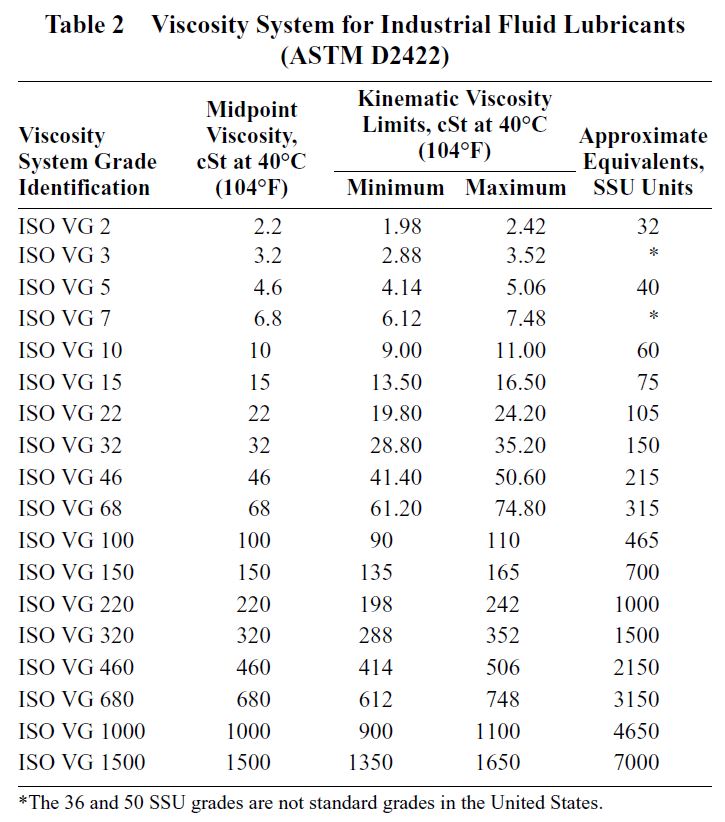Refrigeration Compressor Oil
Refrigeration compressor oil is a specialized lubricant essential for the proper functioning of refrigeration compressors, preventing overheating by reducing friction between moving parts and bearings. It minimizes wear and tear, protects internal components from corrosion, and enhances the system’s thermal efficiency by improving heat transfer. Additionally, it acts as a seal, preventing contaminants from entering the compressor and safeguarding its performance. Proper maintenance and use of this oil are crucial for ensuring the longevity and efficiency of refrigeration systems.
Types of Refrigeration Compressor Oil
Refrigeration compressor oils are classified into two primary categories: mineral oils and synthetic oils, each chosen based on the refrigerant type and operating conditions of refrigeration systems. Below is an overview of these oils and their applications.
Mineral Oils
Derived from the distillation of crude oil, mineral oils are traditionally used in compressors that operate with refrigerants like R22 and CFCs. These oils have been widely utilized in the refrigeration industry due to their low cost and stable properties. However, their use has declined with the advent of stricter environmental regulations, the replacement of older refrigerants with newer alternatives, and their high solubility in modern refrigerants. While mineral oils exhibit good resistance to oxidation, they perform less effectively at low temperatures.
Synthetic Oils
Synthetic oils comprise several subcategories, each offering unique properties suited for specific applications:
- Polyester (POE): Standard for systems using HFC refrigerants such as R134a and R410a, POE oils provide high thermal stability and excellent compatibility with HFCs. They are effective in preventing deposit formation, ensuring optimal system performance.
- Alkylbenzene (AB): These oils are compatible with HCFC refrigerants, offering high chemical stability and good lubrication. However, their usage has decreased as HCFC refrigerants are replaced with environmentally friendly options.
- Polyalphaolefin (PAO): Known for properties similar to mineral oils, PAO oils offer enhanced thermal and chemical stability. They perform well in low-temperature environments and resist oxidation more effectively.
- Polyalkylene Glycol (PAG): Commonly used in automotive air conditioning systems and specific applications with R134a, PAG oils provide excellent moisture absorption and resistance to thermal degradation. However, their incompatibility with certain materials necessitates careful selection of system components.
It is essential to note that refrigeration compressor oils differ from engine oils. Refrigeration oils contain lower levels of carbon and sulfur, making them specifically suited for refrigeration system requirements.
Applications of Compressor Oil
The primary function of compressor oil is to reduce friction and minimize wear by forming a thin film between moving parts, thereby lowering the coefficient of friction between components. Beyond lubrication, compressor oil serves various critical roles in refrigeration systems. It reduces heat, cools components, and creates a sealed space to prevent contamination while maintaining pressure. Additionally, it protects against rust and corrosion and directs wear-generated debris toward the crankcase.
In refrigeration compressors, the role of oil extends beyond basic lubrication. It acts as a barrier between the suction and discharge areas, ensuring efficient operation. Furthermore, it cools the bearings and other moving parts by transferring heat to the crankcase, thereby enhancing the system’s performance. Compressor oil also reduces noise generated by internal moving parts, with higher-viscosity oils offering better sealing properties and improved noise suppression.
Technical Specifications of Refrigeration Oils
Refrigeration compressor oils must meet specific performance criteria to function effectively under the low-temperature and high-pressure conditions typical of refrigeration systems. Key properties such as viscosity, pour point, flash point, and chemical stability determine their suitability. Below is an overview of these critical technical specifications.
Viscosity of Oil
Viscosity measures a fluid’s resistance to flow and is classified according to ISO standards. For instance, an oil with an ISO VG 32 designation has a viscosity of 32 cSt at 40°C. The operational environment significantly impacts the choice of oil viscosity. At lower temperatures or when refrigerant dissolves into the oil, the viscosity increases, directly affecting compressor efficiency and overall system performance.
Pour Point of Oil
Refrigeration oils must retain their lubricating properties at the lowest operational temperatures, which is determined by their pour point. The pour point, distinct from the freezing point, indicates the temperature at which the oil ceases to flow after brief exposure to low temperatures. However, prolonged exposure to temperatures above the pour point can still cause solidification, making a low pour point essential for refrigeration applications.
Flash Point of Oil
The flash point is typically less critical in refrigeration applications, except in systems that use refrigerants like ammonia or methyl chloride. These refrigerants have high specific heat capacities, leading to elevated adiabatic temperatures during compression. In such cases, oils with a low flash point risk carbonization, making flash point an essential consideration in high-temperature systems.
Solubility of Refrigerant in Oil
Refrigerants exhibit varying degrees of solubility in oil, influenced by gas pressure and oil temperature. Chlorinated refrigerants such as R-11 and R-12 are fully soluble in most oils across all temperatures. Non-chlorinated refrigerants like R-134a and R-22 require specific oils, such as polyester (POE) or polyalkylene glycol (PAG) oils, due to their solubility characteristics. Ammonia and carbon dioxide, however, have very low solubility in mineral oils, necessitating careful selection of oil types for systems using these refrigerants.
Characteristics of Refrigeration Compressor Oil
Refrigeration compressor oil must exhibit specific qualities to ensure optimal performance and system longevity. Key characteristics include:
- Proper Viscosity: The oil’s viscosity should strike a balance—remaining fluid enough at low temperatures for effective circulation, while retaining sufficient thickness at high temperatures to provide reliable lubrication.
- High Thermal Stability: The oil must withstand high operating temperatures without breaking down, as certain areas of the compressor can experience significant heat during operation.
- Compatibility with Refrigerant: Compatibility with the system’s refrigerant is crucial to prevent the formation of insoluble mixtures or deposits. This is one of the most critical properties of refrigeration compressor oil.
- Anti-Rust and Anti-Corrosion Properties: The oil should protect the compressor’s metal components from rust and corrosion, ensuring durability and consistent performance over time.
Comparison of Mineral and Synthetic Oil Properties
| Mineral Oil | Synthetic Oil | Feature |
| Derived from crude oil refining | Chemically synthesized with precisely designed molecules | Raw Material |
| Contains more impurities | Fewer impurities, uses special additives | Impurities |
| Lower; degrades faster at elevated temperatures | Higher; performs better under high temperatures | Thermal Stability |
| Low; oxidizes faster, necessitating more frequent changes | High; longer lifespan and less prone to oxidation | Oxidation Resistance |
| More affected; becomes thicker at low temperatures | More stable; minimal viscosity change with temperature | Temperature Effect on Viscosity |
| Lower; more prone to fire risks | Higher; safer to use in high-temperature conditions | Flash Point |
| Adequate; provides a thin lubricating layer between moving parts | Very high; effectively reduces friction and wear | Lubricating Ability |
| Shorter; requires frequent replacement | Longer; durable across diverse conditions | Service Life |
| More affordable | Higher cost | Price |
| Broad compatibility with various materials | Limited compatibility with some materials | Compatibility with Materials |
| Compatible with older refrigerants such as R-11 and R-22 | Suitable for modern refrigerants like R-134a and R-404a | Applications |
Types of Refrigeration Oil Brands
Several prominent brands produce high-quality refrigeration oils, catering to a wide range of needs:
- Bitzer Compressor Oil
Bitzer, a renowned German company with a long history in refrigeration equipment production, offers top-tier polyester and mineral oils. Known for their excellent compatibility with various refrigerants, these oils enhance compressor performance while protecting against wear and corrosion. Bitzer oils are also recognized for their cost-effectiveness. - Suniso Compressor Oil
Suniso, a well-known Belgian brand, produces oils available in two series: GS (mineral) and SL (polyester). These oils are widely used across refrigeration and industrial sectors due to their high quality and consistent performance. - Gulf Compressor Oil
Gulf manufactures mineral and polyester oils tailored to meet the diverse demands of refrigeration systems. Renowned for their excellent refrigerant compatibility and ability to withstand harsh working conditions, Gulf oils are ideal for various industrial applications. - Fuchs Compressor Oil
Fuchs, one of the world’s largest oil producers, offers an extensive range of industrial oils. Their compressor oils are highly compatible with refrigerants like R22, R404A, ammonia, and CO₂, making them suitable for a variety of refrigeration systems.
Refrigeration Compressor Oil Prices
The price of refrigeration compressor oil varies depending on several factors, including the type of oil, the brand, and its quality. Mineral oils are generally less expensive than synthetic oils, but synthetic oils are preferred for professional applications due to their superior performance at high temperatures and higher oxidation resistance. Well-known brands such as Shell, Mobil, and FUCHS tend to be more costly due to their high quality and strict production standards, but they offer a longer service life. Additionally, the type of compressor influences oil pricing, with oils for screw compressors typically priced differently than those for other types of compressors.
Conclusion
Ultimately, the choice between mineral and synthetic oils depends on your compressor type and refrigerant, as each oil type has specific features and applications. Proper oil selection, combined with regular maintenance and checks, plays a crucial role in the performance and longevity of refrigeration systems. For expert guidance on selecting and purchasing refrigeration compressor oil, “Atlas Refrigeration Co.” offers valuable advice. As an official supplier of various refrigeration compressor oils, Atlas Co. Ltd., with its specialized and professional team, is ready to serve a wide range of industries.
Oil foaming in a compressor can occur due to the backflow of refrigerant liquid into the compressor or a rapid increase in refrigerant volume. Additionally, moisture, suspended particles, or chemical contamination in the oil can contribute to foaming.
Oil should be replaced based on operating hours, a noticeable decrease in system performance, or changes in the oil’s color and viscosity. Regular checks can help determine when an oil change is needed.
Using the wrong oil can reduce efficiency, increase wear on components, and cause significant damage to the compressor.
No, each compressor requires oil with specific characteristics tailored to the type of refrigerant and operating conditions. The wrong oil can negatively impact performance and longevity.
Related posts
Refrigeration Oils
Ammonia Valves | Applications of Ammonia and Operating Conditions Ammonia valves play a crucial role in regulating the refrigerant within
Valves and Control Devices in Ammonia and Freon Refrigeration Systems The variety of valves and control devices in refrigeration systems
What is Air Conditioning? Air conditioning encompasses the regulation of temperature, humidity, and air quality within indoor spaces, aiming to





